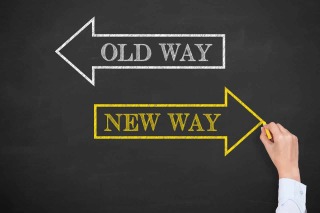Enjoy Being Wrong
We at Mobus Creative Negotiating have drawn much from the work of Adam Grant, a psychology professor at the Wharton School. His latest book, Think Again (Viking, $28), is another gold mine of wisdom.
His theme is how important is changing your mind. As Philip Delves Broughton summarizes in his review of the book in the Wall Street Journal, “We should be humble about our convictions and beliefs, curious about the alternatives, and open to discovery and experimentation” (https://www.wsj.com/articles/think-again-review-moderately-condent-11612480886, behind a paywall). Grant argues that the most innovative thinkers are those who are not insistent on being correct; in fact, they take genuine pleasure in finding out they were wrong. He cites as a warning Mike Lazaridis, the electronics wizard who founded BlackBerry, leading his company to a valuation of $70 billion in 2008, only to fall into bankruptcy because Lazaridis refused to accept that mobile devices would be used for anything other than e-mail. Lazaridis has a brilliant idea, but he stuck to it even when times changed and he needed to move on.
An important part of moving ahead is to encourage disagreement. He says, “the absence of conflict is not harmony, it’s apathy.” But one has to keep arguments about the path forward from becoming personal tensions – something much easier to do if people are encouraged to change their positions, not to stick to their guns no matter what. The economist John Maynard Keynes supposedly said, “When the facts change, I change my mind; what do you do, sir?”
Perhaps the best chapter of Think Again is about “charged conversations” with people who cling to their position. Grant writes, “Psychologists find that people will ignore or even deny the existence of a problem if they’re not fond of the solution.” His suggestion: when confronted with a stubborn position, use nuance – focus on solutions the other person may find attractive. He writes, “Asking ‘how’ [to solve a problem] tends to reduce polarization, setting the stage for more constructive conversations about actions.”

